I love experimenting with different wreaths, and this year I decided to try making one out of magnolia since they produce such gorgeous foliage. I couldn’t be happier with how it turned out! The glossy leaves with textured undersides create an interesting contrast that looks unique and eye-catching while still maintaining the classic natural look of a fresh wreath.
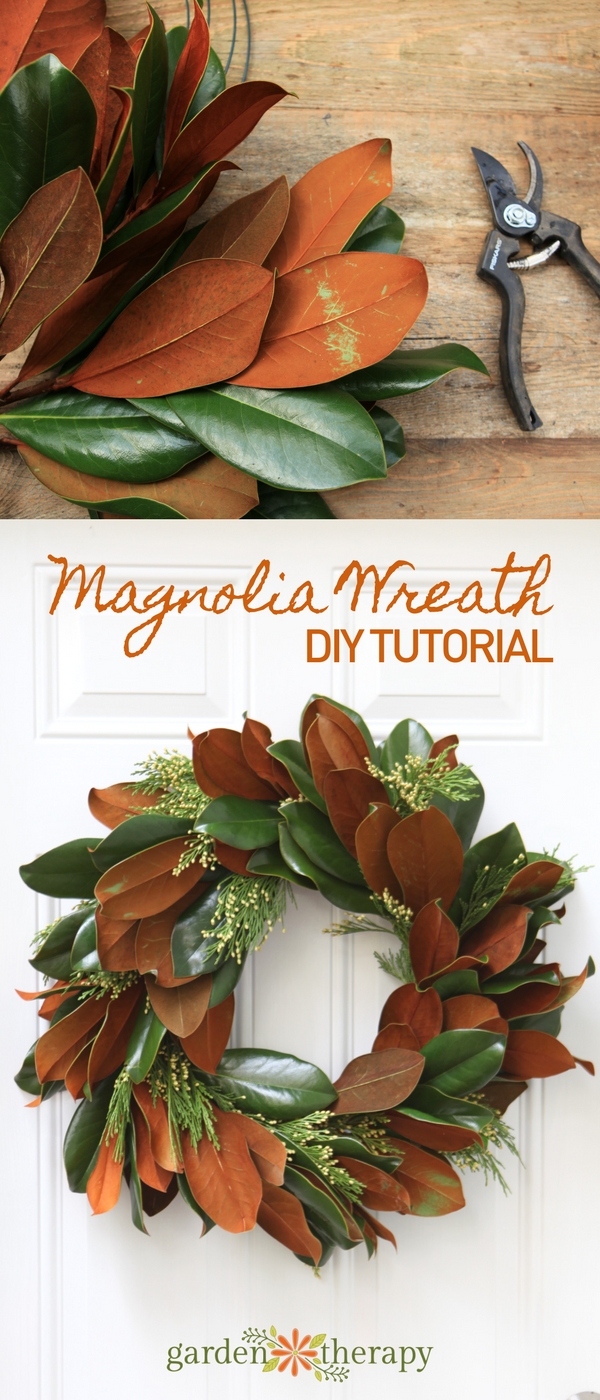
Disclosure: This post is sponsored by Monrovia. All opinions in this post are my own. Be sure to check out the shop.monriovia.com giveaway at the end of this post as well!
Magnolias have an interesting botanical characteristic called indumentum, which is a layer of trichomes or small hairy looking bristles covering an area of a plant (in the case of magnolias, it is on the underside of the leaves). Indumentum works to protect plants from insects and help to control water absorption and sun damage.
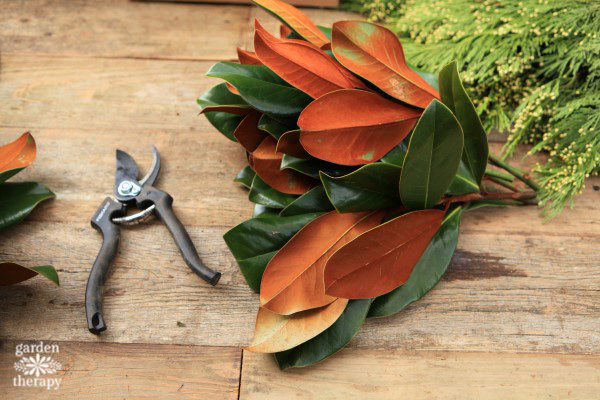
While many magnolias are prized in the spring for their scented blooms, Magnolia Grandiflora is known for its foliage. It has attractive, dark green leaves with a rusty brown color peeking out from underneath. The glossy green of the leaves would be attractive enough on its own, but the underside of each leaf is often covered with a thick brown or rust colored indumentum which creates a textural quality that looks like velvet.
How to make a Magnolia Wreath
Materials
- Magnolia Grandiflora branches with leaves intact
- Wire wreath form
- Incense cedar, juniper berry branches, or seeded eucalyptus (optional)
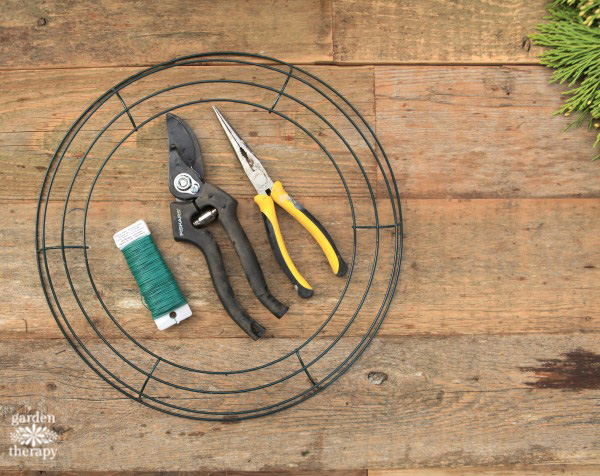
Make it!
To begin, you will need a wire wreath form. Gather your magnolia clippings in small bundles before securing them to the wreath.
Wrap each bundle around the wreath form with wire, overlapping them so that the stems are covered by the leaves of the next bundle. To see detailed instructions for attaching your bundles, head over to my tutorial on how to make an evergreen wreath.
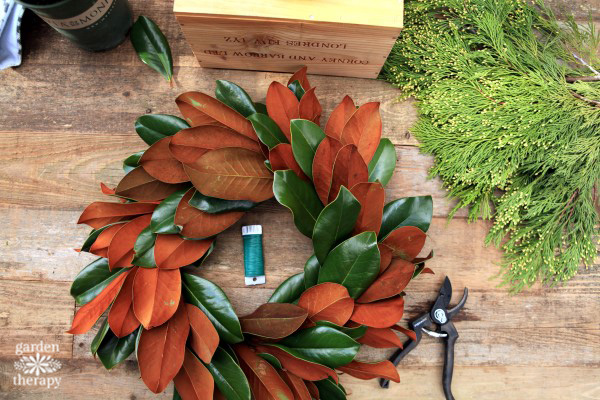
I use twine for most wreaths that are tossed in the compost after the holidays because it is compostable. But for a wreath that will last many months or even years, I use paddle wire.
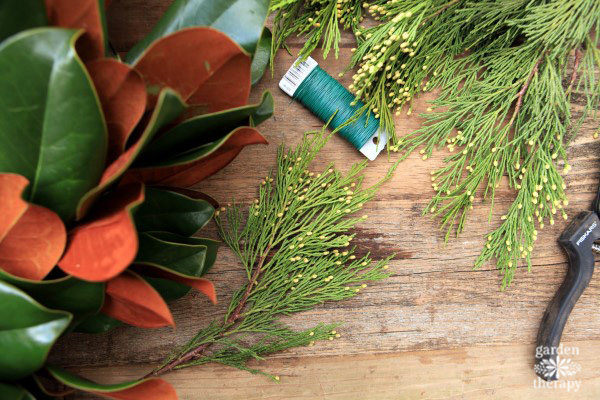
You can use a set of needle nose pliers to tighten the paddle wire as the branches dry out and shrink. Just turn the wreath over and gently twist the wire to tighten the hold on the branches.
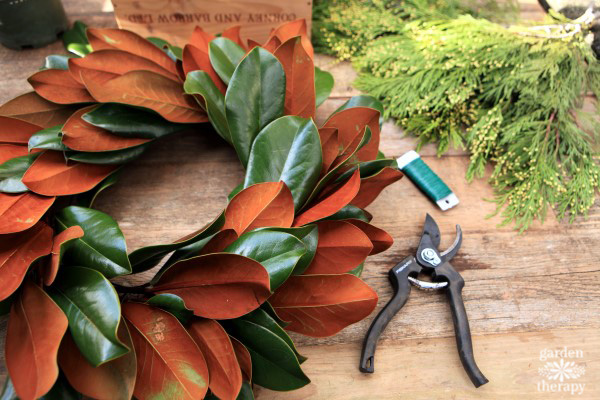
It’s not necessary to add anything other than magnolia leaves to the wreath, although a few branches of incense cedar, juniper berry branches, or seeded eucalyptus can add a little extra interest. I decided that my plain magnolia wreath needed a little jazzing up.
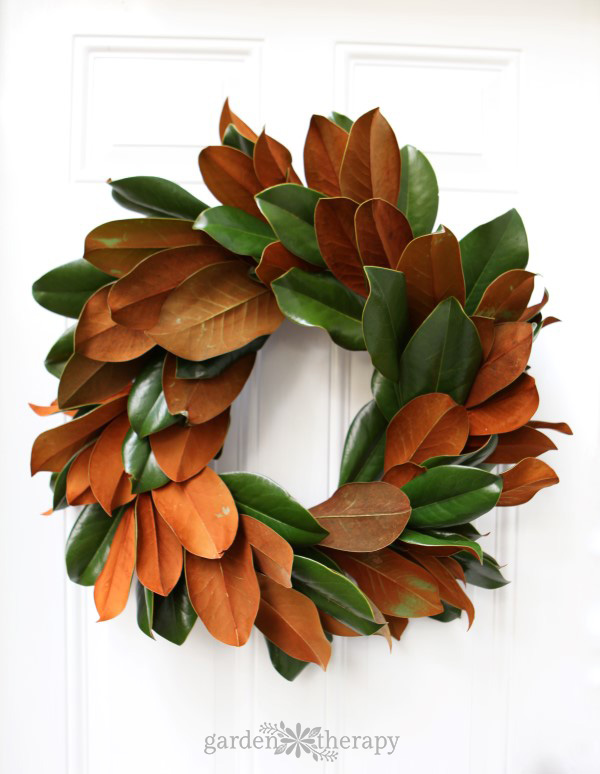
I love the way this incense cedar looks with the magnolia, plus it has a lovely fragrance, so I added some to my wreath in between the magnolia leaves.
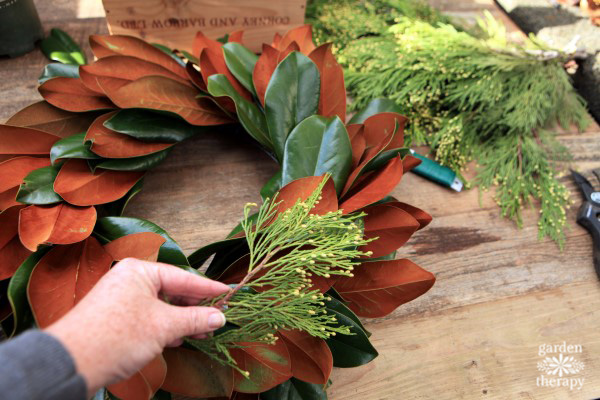
Now it’s perfect!
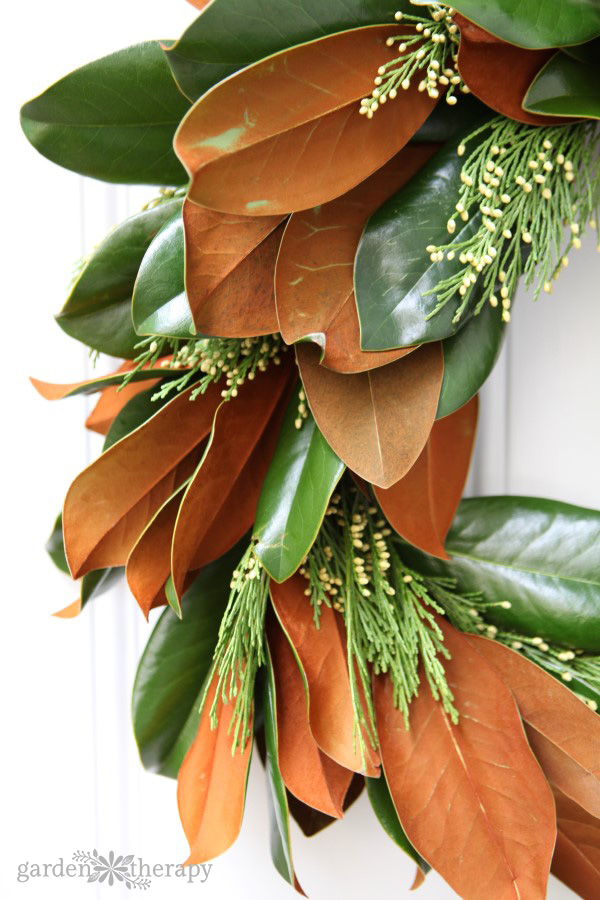
Care
In most areas, the wreath should last for a few months and look freshly crafted. Over time, the green leaves will fade to brown but the indumentum will stay the same color. The leaves will become more brittle as the wreath ages, so wipe it gently with a soft cloth to clean without breaking the leaves.
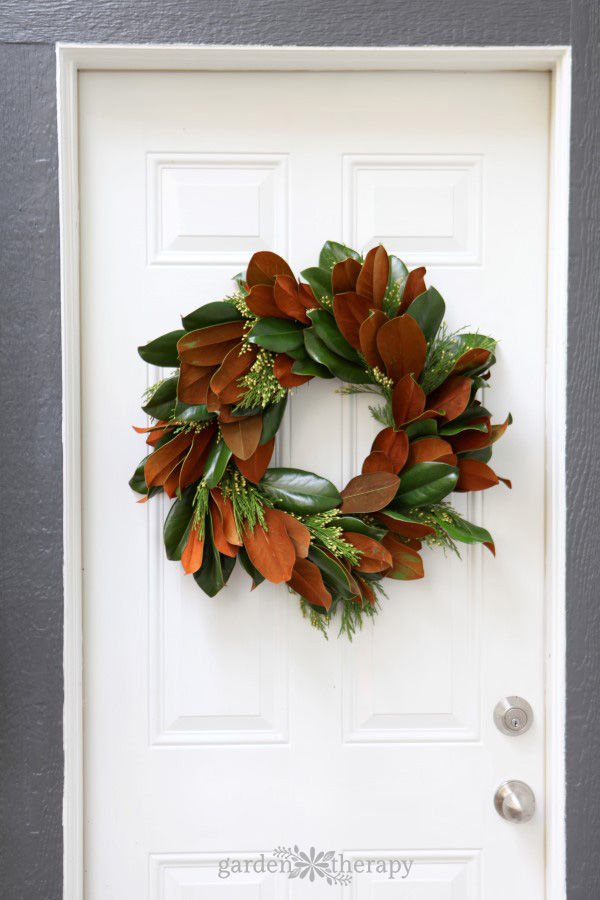
Magnolia Varieties
Here are a few different types of magnolia that produce gorgeous foliage. If you are thinking of adding a magnolia to your garden, one of these will be just the thing—even if you only have space for a container garden!
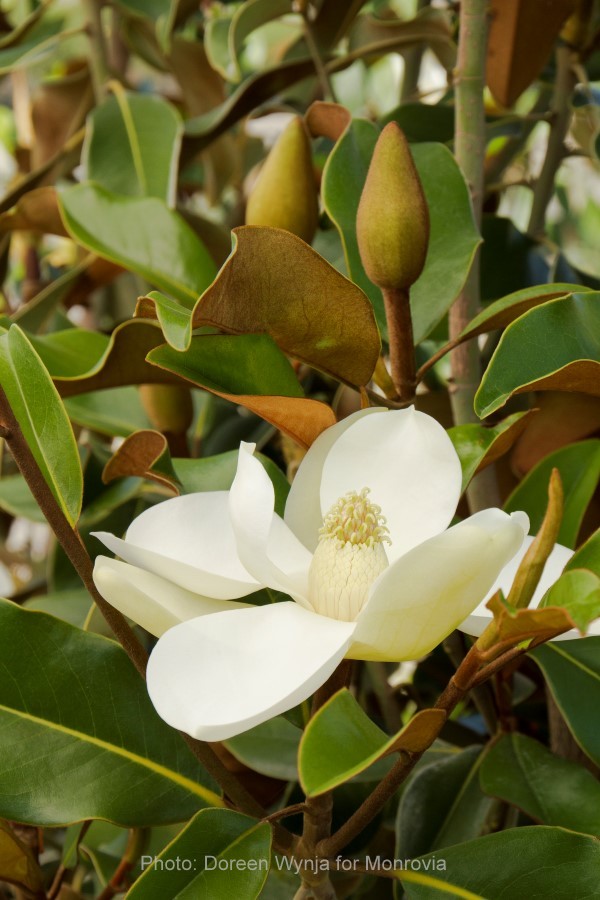
Most Popular for Cutting Material:
Bracken’s Brown Beauty Magnolia has bright green glossy leaves with a faded brown underside. Hardy in Zones 5-9.
D.D. Blanchard Southern Magnolia has large, very dark green glossy leaves with a bright, rust-colored underside. Hardy in Zones 7-9.
Kay Parris Magnolia has much smaller leaves than the two listed above. The leaves are bright green and glossy, with a velvety underside and wavy edges that create an interesting shape. Hardy in Zones 6-9.
Best for a Small Space:
If you want to grow a magnolia but don’t have a lot of extra room, the Little Gem Dwarf Southern Magnolia is for you! It is bred specifically for container gardening, so you can get the beauty of a magnolia with whatever space limits you have. Hardy in Zones 7-9.
Teddy Bear Southern Magnolia is also a small space dream because of its upright habit. The shiny, deep green leaves have a heavy reddish-brown felt beneath and in the warm months, there are large 6- to 8-inch fragrant white flowers to enjoy. Hardy in Zones 7-9.
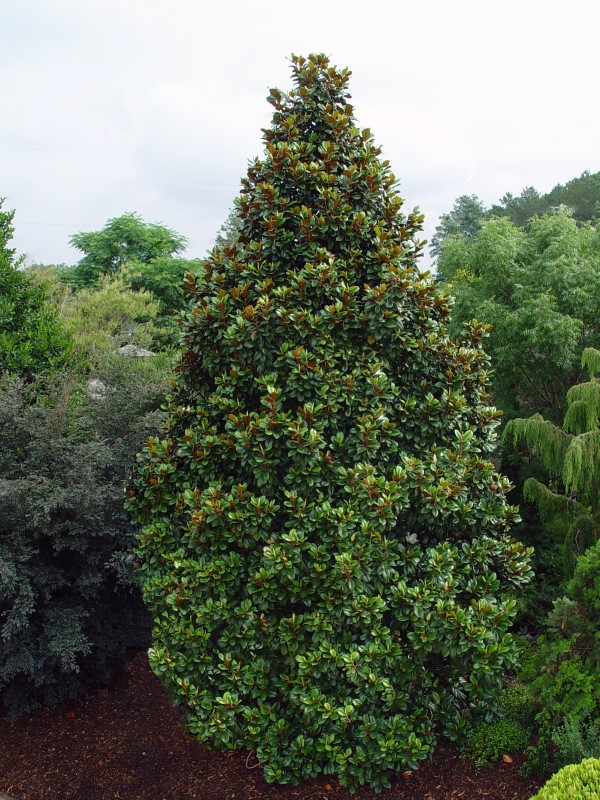
Dramatic Foliage:
For a really stunning display, check out the Alta Southern Magnolia. Its glossy leaves are such a dark green that they look almost black, which contrasts beautifully with the rusty undersides. Hardy in Zones 6-10.
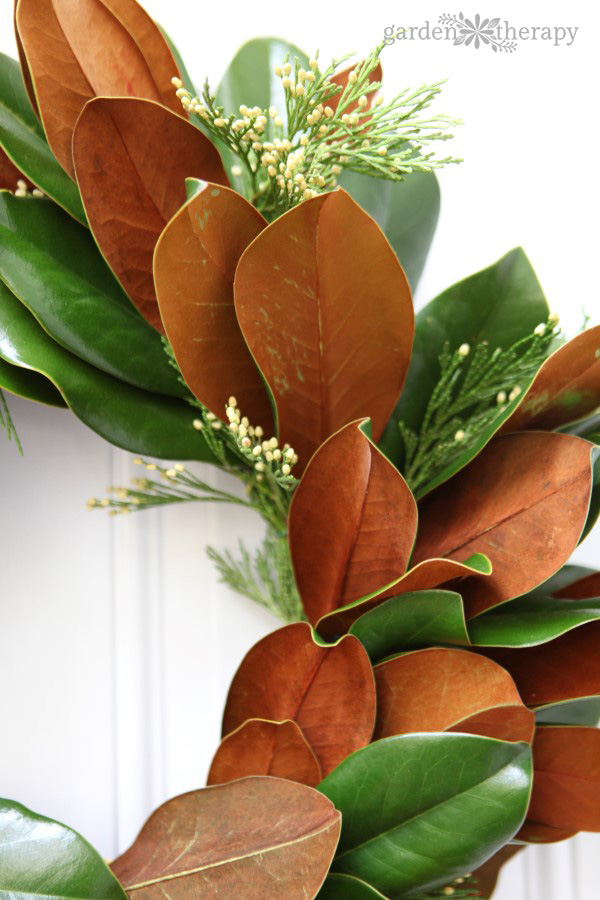
Giveaway!
I’m thrilled to be giving away a $50 gift card to shop.monrovia.com so you can pick out just the right plant for your garden! This contest is now closed. Congratulations to the winner, Janice!
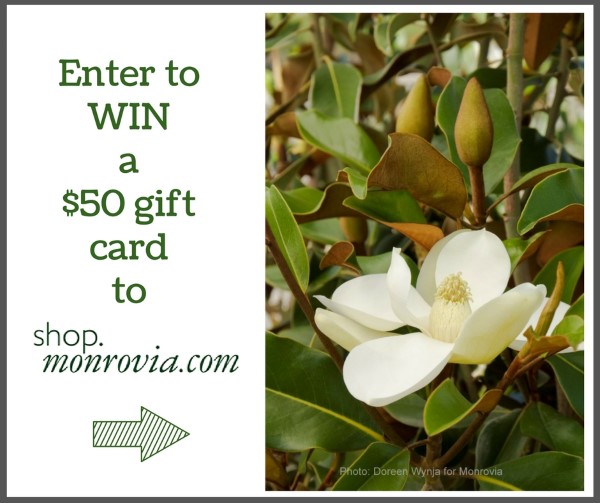
For even more wreath-making tips, see these posts:
Save
Original article and pictures take gardentherapy.ca site
No comments:
Post a Comment